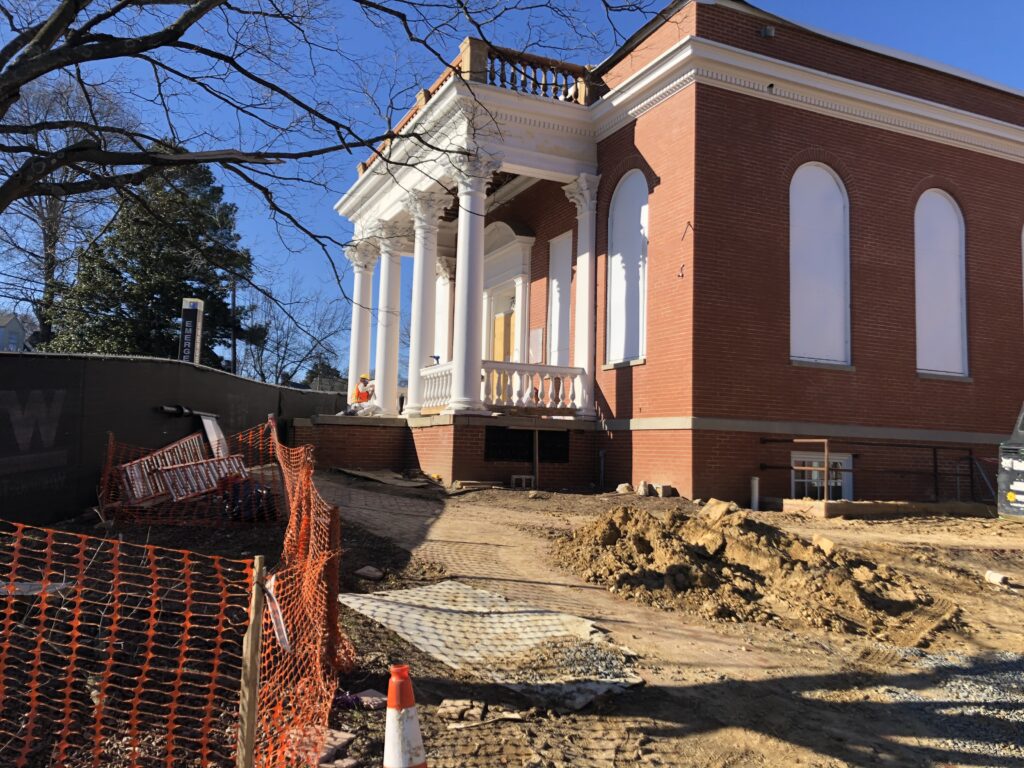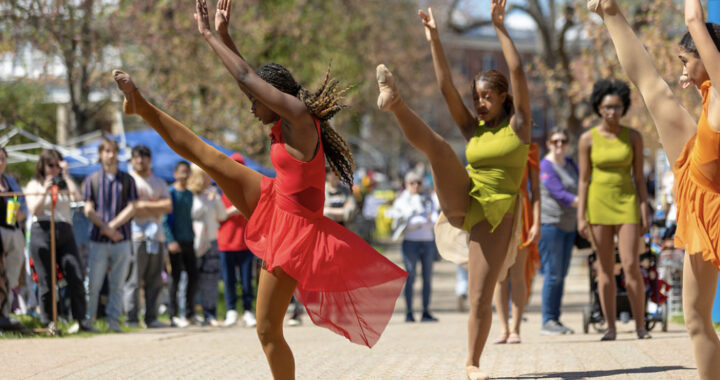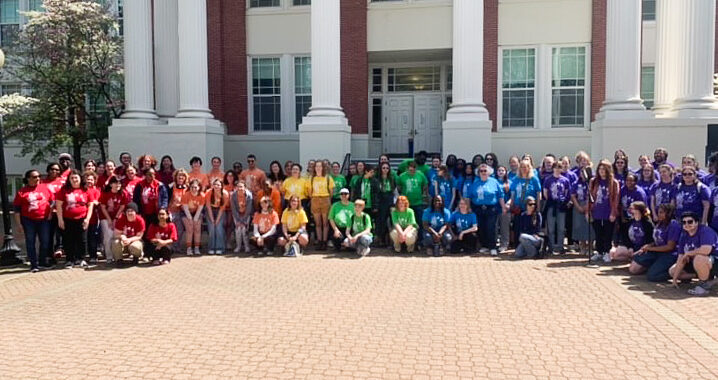End of five-year education program has lasting effects
4 min read
Seacobeck Hall will reopen to the College of Education in late fall of 2021. | Cara Lowengrub, The Blue & Gray Press
By MATTHEW BOVA
Staff Writer
Starting in the fall of 2020, the UMW College of Education transitioned away from a five-year bachelor’s and master’s degree program to a four-year bachelor’s degree. Those enrolled in the College of Education before fall 2020 are able to finish both their bachelor’s and master’s degree program, but current sophomores, freshmen and future students are left with only the undergraduate degree and teaching certification. This change is still affecting current students, many of which chose UMW for the five-year program and were told they would be eligible for it.
Before transitioning away from the five-year program fall of 2020, students at the University of Mary Washington were able to apply and enrolled in the five-year program during their sophomore year. These students were also able to choose an undergraduate degree and complete it while taking classes in the College of Education. By the end of the program, they had both bachelor’s and master’s degrees and were certified to teach in Virginia public schools.
This program came to an end following a shortage of Virginia teachers. Because of this shortage, the State Council on Higher Education opened and encouraged the creation of bachelor’s degrees in education on May 14, 2019. After much debate, UMW’s College of Education decided to create a series of undergraduate degrees in education. As a small program, the College of Education couldn’t run both this program and the five-year program. UMW decided to stop adding new students to the five-year program while keeping the students already enrolled.
Dean of the College of Education Dr. Peter Kelly spoke about the merits of the new program.
“The thought was, we could get teachers trained faster in four years rather than five obviously, and that would address the teacher shortage,” said Kelly. “That students would incur less debt also, because they’re not going into debt for a master’s degree, and so the state was really pushing universities that have teaching programs to develop undergraduate programs.”
Salem Smith, a junior English major, shared their perspective on the education program. “They implemented that program the year I started the education route, and honestly the only reason I chose to do the five-year plan is because there would’ve been a lot more requirements in the undergraduate plan.” Still, this program has its drawbacks for them: Smith is currently unsure of how they will fund their final year.
The decision to switch programs was not made lightly, according to Kelly.
“We had difficult decisions about it here with my faculty, because not everybody was on board and not everyone believed it was the best thing,” he said.
Graduates with a bachelor’s degree receive a lower salary than those with a master’s. According to data from Fairfax County Public Schools, a new teacher in Fairfax County on a 194-day contract makes $55,000 in their first year if they have a master’s degree, but only makes $50,000 with a bachelor’s. Ten years later on the same contract length, the teacher with a master’s degree would make $76,049 while the teacher with a bachelor’s would make $67,150.
Kelly said that, while he understands the disappointment that these students feel, the decision was coordinated with the Office of Admissions so that students understood the change in programs.
When asked about the potential of misleading students, Dean Kelly said “There shouldn’t be anyone who ran into that problem, because we worked pretty closely with Admissions and our website, so [if] a freshman came here and that program as advertised, then they’re going to finish that program.” However, versions of the website captured by the Wayback Machine tell a different story. On Sept. 12 2019, the College of Education’s website displayed no warning about the end of the five-year program. The next version captured on Oct. 5, 2019 displays the warning that it would be discontinued. This was after ineligible students were already enrolled.
Lauryn Bailey, a sophomore history major pursuing her certification in secondary education, began her time at UMW in the fall of 2019. The five-year program was one of her main factors in picking the school. The program was advertised to her during her orientation, and she did not find out that she was ineligible until her second semester at UMW.
“I’m definitely disappointed, because I was told before I enrolled at UMW that I would be able to do the five-year program, and I was also told at my orientation that I’d be able to do the program,” said Bailey. “I’m a history and secondary education major, so I didn’t have to start applying to the program until fall of sophomore year, and I missed the cutoff to join the five-year program.”
Despite her frustration, she does not believe the College of Education was trying to be misleading. “When I was at that information session it was with Dr. Brecht [in the spring of 2020], and I asked the question ‘Would I be able to enter the 5-year program?’ and she said ‘No.’”
Hannah Meszaros, a junior elementary education major, transferred into UMW in the summer of 2020. During her enrollment, she had the option to enter either program, but was encouraged to take the undergraduate path. “They had told me that I would still get my master’s in the same time period. I would complete my degree in the undergraduate program, graduate and begin teaching, and they would have a one-year master’s program for me to roll right into rather than taking it all together.” Meszaros has since been told that the program she was told about may or may not open by the time she graduates with her Bachelor’s.
Meszaros felt like she had been misinformed by the College of Education during her transfer process. “I’m not sure where in the line, but there was definitely a gap in communication.”











